16 Partners React To Microsoft Partner Program Changes
LAN Infotech, TanChes Global Management, Axiom, Computer Troubleshooters and HillSouth IT Solutions are among the companies to weigh in on Microsoft’s partner program changes.
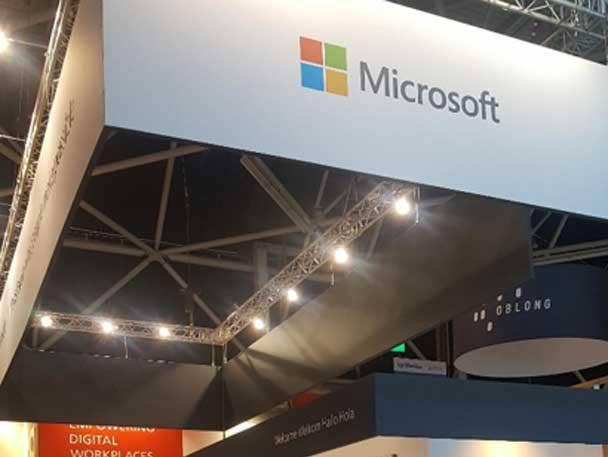
Just about every Microsoft partner has something to say about program changes the tech giant is rolling out this year, from a premium on month-to-month commitments for popular product packages to a new scoring system to determine which partners qualify beyond a base-level membership to the Microsoft ecosystem.
CRN has followed the rollout of Microsoft’s New Commerce Experience – a campaign that comes with the month-to-month premium on top of an overall price increase for Microsoft 365 and other products from the Redmond, Wash.-based tech giant – and now the relaunching of the Microsoft Partner Network as the “Microsoft Cloud Partner Program,” which includes the introduction of a partner capability score (PCS) needed to qualify as a “solutions partner” and achieve specializations.
As part of the Microsoft Cloud Partner Program rollout, Microsoft is abandoning its legacy Gold and Silver partner designations, which not only served as a badge of sorts to demonstrate to customers expertise in a particular Microsoft technology, but also came with financial incentives and benefits for partners.
[RELATED: Microsoft Cloud Partner Program Changes Needed But Timing Poor, Partners Say ]
Partners have almost universally put down the month-to-month premium, saying that it incentivizes customers to go for an annual commitment and in turn that annual commitments lock end users into a contract and lock partners into a contract with their distributors, defying the flexibility long-touted as a benefit to cloud.
All throughout the partner program changes rollout, Microsoft Channel Chief Rodney Clark has defended the tech giant’s choices. He has said that customers are used to annual subscriptions for products and, if they want a monthly commitment, the premium is there for protection in case the end user goes out of business or no longer needs a license.
Partners have been split on the new scoring system, with some praising the scoring system for separating more capable partners from the pack. Other partners have put down the new scoring system, saying that it overemphasizes net new customers and doesn’t properly reward customer retention. They have also spoken against the new scoring system as one more thing to adapt to after two years of COVID-19, remote working and an ever-evolving, ever-innovating Microsoft product portfolio.
Some kind words partners have had for the Microsoft partner program changes include a simplifying of some parts of the sprawling partner program plus an overall price increase across the product portfolio – for both monthly and annual commitments – after a decade of prices staying the same while Microsoft 365 received major updates and innovations.
Microsoft also received some praise for listening to partner complaints around some parts of the partner program changes – including recently extending its original 72-hour window for changes and cancellations to license sales. The new window is seven calendar days.
Some of the partners who have spoken to CRN since Mcirosoft began rolling out the partner program changes include RMON Networks, Computer Helper, LAN Infotech, TanChes Global Management, Axiom, Computer Troubleshooters, HillSouth IT Solutions, Ahieros IT, TrueIT, Network Solutions Provider, KME Systems, Pax8, TD Synnex, Ingram Micro and AppRiver and OpenText.
What follows is what these partners have had to say about Microsoft’s controversial partner program changes.

The Partner Scores Petition
A Microsoft partner based in Australia has started an online petition disapproving of newly announced Microsoft partner program changes, with the petition calling the tech giant’s new partner scoring system “impossible to achieve as it’s heavily biased toward ‘new sales.’”
The partner – who asked CRN to identify him only as George to prevent any retribution from Redmond, Wash.-based Microsoft – published the petition to Change.org. He is the same partner who started a 2019 petition to protest a plan by Microsoft at the time to stop providing partners with internal use rights (IUR) on its products.
“We’re very, very concerned that this is going to continue and it’s going to go down the path of Microsoft wanting to ultimately be that direct relationship with the end user,” George said. “And it‘s a very, very, very scary time now to be a partner. Very scary time now to be a partner, mate.”
George told CRN in an interview that he fears Microsoft eventually incentivizing customers to work directly with the vendor by sticking partners with higher prices and less favorable contract offers.
“What we’re finding is Microsoft is leaning now toward locking people in for longer periods of time and also setting the bar essentially higher for the MSP so that our goals become almost unattainable,” he said.
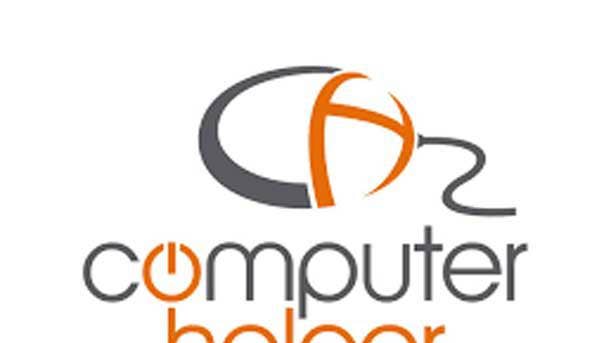
Computer Helper
David Rigdon, a senior systems administrator at Computer Helper, a Douglasville, Ga.-based Microsoft partner, told CRN in an interview that he decided to sign the 2022 petition over the new partner score system because he disagrees with Microsoft’s partner program changes.
“It makes me angry thinking about what Microsoft is doing to their partners, all with the guise that they are helping us out,” Rigdon said. “The changes that Microsoft is rolling out is a blatant disregard for the trust that companies have given Microsoft.”
Rigdon said his company doesn’t yet qualify for any new competencies under the Microsoft Cloud Partner Program (MCPP) changes that come in October, which includes the new scoring system.
“It’s yet another hoop we have to jump through,” he said. “And we’ll see if we can jump through those hoops.”
Rigdo said that his company is still figuring out how Microsoft’s New Commerce Experience changes hit its customers and how to talk to customers about potential price hikes.
He said that Computer Helper’s customers are mostly in the legal and construction fields and that the company helps many customers transition from post office protocol (POP) and internet message access protocol (IMAP) to Microsoft products and services.
“We really need to know – what does our customer base pay for,” he said. “It’s just not been a great experience for us.”

RMON Networks
Tim Howard, CEO of Hampstead, N.H.-based RMON Networks, told CRN in an interview that he’s accepted the New Commerce Experience changes as inevitable and a way for Microsoft to make its subscription model more sustainable.
“Listen, we were just as – upset is the word I’ll use right now – as everyone else is,” Howard said. “Was it stressful? Absolutely. Will we make mistakes? Of course, we’re human. But we’re forging forward. At the end of the day, a lot of our customers are understanding and they’re just paying for it and they’re locking in. And they’re locking in now because they understand the discounts that are there.”
The NCE changes were so disruptive that Howard decided to forgo his direct relationship with Microsoft and work closer with a distributor, Ingram Micro.
“We can go back to our primary distributor and work through discounts with them,” Howard said. “And at the end of the day, we’re still a Microsoft partner. We still have access to all the resources. But one of the things that I liked when I was talking to Ingram Micro is Ingram was talking about building their Microsoft support experience here in the United States.
So we would have something on the East Coast. We’d have something on the West Coast. And we have customers spread out all over the U.S. So that was fine for us.”

LAN Infotech
Michael Goldstein (pictured), CEO of LAN Infotech – a Fort Lauderdale, Fla.-based Microsoft partner and member of CRN’s 2022 Managed Service Provider (MSP) 500 – told CRN in an interview that the MCPP changes should be easier to implement compared to New Commerce Experience.
He said that he has expected for some time now for Microsoft to make its certifications more challenging. Getting rid of the Gold and Silver designations and better rewarding product and service expertise are good moves by Microsoft, he said.
Goldstein appreciates any effort to raise the bar for becoming a Microsoft partner, he said.
“It used to be, fill out these things, pay this fee and go out there – you’re a partner,” he said. “It is a maturing of the program.”
LAN Infotech meets some of the future specialization requirements from Microsoft, Goldstein said. He and his team are working to meet the rest before October.
As for LAN Infotech’s time with New Commerce Experience, Goldstein said that the discounts Microsoft has offered partners who adapt NCE early keep prices the same for now.
“Really what we did is we put off real changes till next year, because that‘s really what it comes back down to,” he said. “For those people that adopted this, they’re locked in and they kept the same price. The real rubber meeting the road is next year where we have to, then let the clients know, ’Hey, here‘s your renewal.’ I think next year is going to be the harder piece.”
He said many of his customers changed their service plans as a result of NCE. He declined to say whether NCE brought more revenue to LAN Infotech overall, but he did say that some customers upgraded to more expensive Business Premium and Enterprise plans while some prospective customers decided to move faster on projects to avoid price increases.
“There was plus – but it definitely was a lot of work to the last minute,” he said. “Like everything, I think the anticipation was worse. The bark was bigger than the bite.”
Adopting the changes, however, has caused a lot for work for LAN employees, Goldstein said.
Some customers waited until “the last minute” to approve license changes related to a Microsoft price increase deadline earlier in March that ended up getting delayed. Partners such as LAN Infotech pushed up against the original deadline, Goldstein said.
“Our company had been filing NCE changes until 11:59 last night and the system was running slow,” Goldstein said. “The extra time (was) much appreciated.”
Goldstein did praise Microsoft for increasing its original 72-hour window for contract changes and cancellations to seven calendar days.
He told CRN in an interview that the change is welcomed so that partners are less anxious over mistakes in license terms for a customer.
“I’d love to see more flexibility if a client goes out of business or when transferring from one cloud service provider to another,” he said.

TanChes Global Management
Tanaz Choudhury (pictured), CEO of Houston-based Microsoft partner TanChes Global Management, told CRN in an interview that customers do respond well to badging from vendors that signifies a partner’s technical expertise.
“When we go into our clients and we tell them, ‘Hey, we are Microsoft Gold and Silver-certified level certified, or Dell Gold partners, that translates to them as an elevated level of support,” she said. “So it‘s a marketing gimmick. But there is still value to it.”
Choudhury said she would like more time than the six months Microsoft has allotted for adopting MCPP changes. “It’s like they change the rules of the game during the game,” she said.
She said that her company has become NCE certified and that customers understood that it wasn’t her company enacting the price change – it was Microsoft. Her customers were already used to yearly and multi-year commitments.
“We‘re one of the lucky ones that have that relationship with the clients where we can pick up the phone and let them know, ’Hey, this is what’s happening, this is where what it is. And we‘ve always been honest with them. So whether they liked it or hated it, they always appreciated the honesty.”
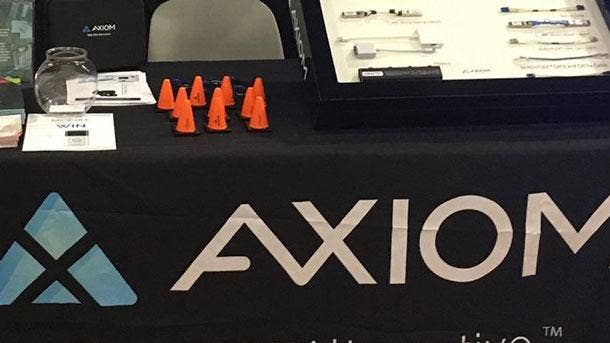
Axiom
Bobby Guerra, CEO of Jacksonville, Fla.-based Microsoft partner Axiom – a critic of parts of the New Commerce Experience who even started a petition calling for Microsoft to revoke the 20 percent premium on monthly – said that even more program changes while partners adopt NCE comes off as tone deaf.
“It seems irresponsible,” he said.
Guerra said he’s already trying to figure out how to upgrade at least one customer to a more expensive business plan with the new rules around customer lock in after seven days.
Another issue he’s navigating with his distributor is a cash float created because of changing so many customers’ commitments, but not yet getting the money from those commitments to offset NCE services provided by his distributor.
Guerra said that he was pleasantly surprised by the number of customers willing to move to an annual commitment. But the amount of hours it took to ready customers for the changes leaves him uncertain that he’s seen a return on investment just yet.
“I made some money in this, which I appreciate,” he said. “Microsoft has created some opportunities. Now, whether I made money if you factor in all the incredible amount of hours I‘ve had to spend to go through to prepare all this, I don’t know if it really has been a real, truly profitable experience for us because – I’m not joking – it was probably two 60-hour work weeks getting ready for it. Weekends. People don’t like it when you screw their bill up, so we had to go through and do it the right way. Double check everything.”
Guerra did say he appreciates Microsoft extending its original 72-hour cancellation and alteration window to seven days.
“It’s great news to see that Microsoft has listened to some of the critical complaints we have had about NCE,” Guerra said. “Hopefully they can address the ability to change SKUs (stock-keeping units) like E3 to Business Premium after an annual purchase.”
Guerra’s company has already run into the issue of changing license types when onboarding new clients, he said. “This will only get worse now that Microsoft is pushing annual subscriptions more.”
When asked about why he started a petition against the month-to-month premium, Gerra told CRN that up until this point, the price difference between monthly and annual Microsoft 365 subscriptions has been negligible. “And it’s been that way for years,” he said. .
Customers have particularly appreciated the ability to easily ramp up or down on seat licenses during the uncertain times of the pandemic, he said. “It’s been a huge help for them over the last few years,” Guerra said.
And even for customers who have technically been on annual subscriptions, Microsoft has accepted monthly payments and has not enforced penalties for customers who needed to lower their seat counts month to month.
Microsoft Channel Chief Rodney Clark recently said that the month-to-month premium was enacted to address “some unintended business models” created from the company’s Cloud Solution Provider program.
“The 20 percent is not meant to penalize anyone or to shift and change business models,” Clark told the audience at CRN parent The Channel Company’s XChange 2022 event. “The reality is that we had a program in CSP that actually created some unintended business models for us – and one of which was this notion of monthly.”
Guerra previously said that if Microsoft provided a way to recoup money on dropped seats or extended the cancellation period, he might be happier with Microsoft’s decision. He added that he doesn’t have any quarrel with the previously announced price increase for Microsoft 365—which will be the first major price hike for the productivity suite in a decade.
“We just want them to back off that margin on the monthly,” Guerra said.
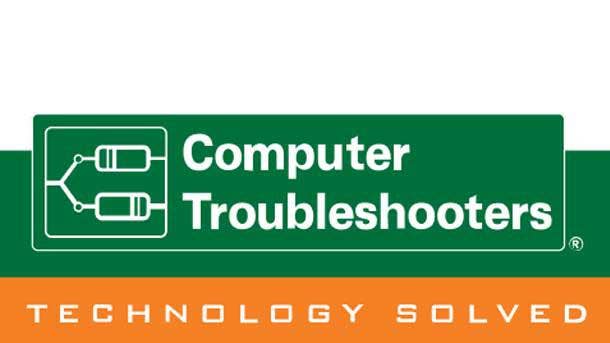
Computer Troubleshooters
Emily Lugo, owner of a Computer Troubleshooters franchise in Greensboro, N.C., told CRN that she signed Bobby Guerra’s petition against the 20 percent monthly-to-month premium because she has customers still struggling due to the pandemic and who would struggle even more with an additional price increase to keep the flexibility of month to month.
Lugo has been working to help her customers--which include medical and professional services companies, some of which she’s worked with for nearly 15 years--by offering more flexible payment plans until their own revenue numbers return to pre-pandemic levels.
“It’s kind of like adding insult to injury,” Lugo said, speaking of the expected fee on monthly subscriptions. “Either I have to take a hit or I have to pass a hit to my clients. Either way, it’s just one more thing to have to deal with and to have conversations about. This is not what we needed right now.”

HillSouth IT Solutions
When asked about the month-to-month premium on popular Microsoft products, Robby Hill, founder and CEO of Florence, S.C.-based HillSouth iT Solutions, told CRN that he just doesn’t “see the business case for reaching backwards and pushing annual contracts onto our customers.”
“That’s just antithetical to everything we’ve done over the last five years as a partner ecosystem in the [Microsoft] 365 space,” Hill said.
Without question, Microsoft has added a significant amount of value to the Microsoft 365 suite in recent years, Hill said. The suite includes Office 365 productivity apps such as Outlook, Word, Excel and PowerPoint. It also includes the Teams collaboration app, which has surged in usage during the pandemic.
“The product we have today is infinitely more marketable and better suited towards the needs of our business clients than it was five to 10 years ago,” Hill said.
But pushing customers to yearlong commitments for cloud products is the wrong approach, he said.
“Companies are constantly changing their head counts. And part of the allure of having a cloud-first service offering is that you’re not supposed to buy more licenses than you consume every month,” Hill said. “I just firmly believe that a cloud-first program requires companies to not buy more than they need.”
When he spoke to CRN, Hill said that all of his customers are on monthly contracts for Microsoft 365 and they pay based on what licenses they actually consumed the previous month.
Attempting to push an annual licensing program on customers will only lead to customers feeling “alienated,” he said. “They don’t want to be left holding the bag with more licenses than they’ll use.”

Ahieros IT
John Jordan, president of Knoxville, Tenn.-based Microsoft partner Ahieros IT, told CRN in an interview that his company decided against paying for Silver and Gold designations in the past because he didn‘t see a return on the investment when he and his colleagues already had other certifications.
“We did do some Silver – we didn’t see the payoff,” Jordan said. “One of the key things that both Silver and Gold is supposed to do is it’s supposed to help draw in new clientele. It never did. At the very end of the day, it was more so word of mouth.”
He is, however, interested in more training and workshop opportunities for partners and a higher level of customer support that might come with the new partner levels.
Jordan said he is overall unhappy with the changes coming from Microsoft, saying that they seem to favor the largest partners who have the staff and capital to handle the short-term changes.
“It gives very large partners preference,” he said. “Certain ones that are growing or emerging, it doesn‘t.”

TrueIT
Zac Paulson (pictured), CEO of TrueIT — a Fargo, N.D.-based Microsoft partner and member of CRN’s 2022 MSP 500 – told CRN in an interview that he is glad to see Microsoft increase the difficulty of becoming a partner and reward partners that specialize.
“The idea of having a specialized level for things like business applications makes a partner with lots of Dynamics talent excited,” Paulson said. “It should help distinguish one partner over another when it comes to areas of expertise.”
The timing of the MCPP changes isn’t ideal, Paulson said, since partners are still grappling with New Commerce Experience.
Still, he’s not surprised by more changes to Microsoft’s partner program and expects more in the future.
“It doesn’t surprise me that they are making tons of changes,” he said. “That business has evolved a lot and is ripe to change.”
On the subject of Microsoft’s monthly premium – which some partners believe incentivizes annual commitments over monthly ones – Paulson said it “is almost anti-cloud.”
“The reason we have the cloud is to be flexible, and we‘re taking the flexibility out, and I don’t like that,” he said.
“The entire managed service model has evolved to a point where one of our selling points for just about every single managed service company on the planet is flexibility,” Paulson continued. “That’s essentially the selling point. You may have to sign a one-year contract to be part of something. But very few managed service providers hold the dissatisfied customer under contract. And I feel like one of the things NCE is pushing us toward is that —dissatisfied or not—the client has to stay with their current MSP beyond whether or not they want to switch or not. And that flexibility not being there is really frustrating in my opinion.”

Network Solutions Provider
Phil Walker (pictured), CEO of Network Solutions Provider — a Microsoft partner based in Manhattan Beach, Calif., and member of CRN’s 2022 MSP 500 — told CRN in an interview that he is happy for the changes Microsoft is making overall. The competition for cloud and business applications is growing for Microsoft from companies such as Amazon Web Services and Google.
As the tech giant changes to meet customer demand, partners must also change, Walker said.
“The change is good,” he said. “It’s not always what we want, but good business is good business. Net new business should be a higher value to Microsoft. As competitors change, we all must adjust as well.”
When asked about the month-to-month premium, Walker said that the conversations with customers around the new pricing approach will be difficult and likely to create “anxiety” for them.
It puts the solution provider in the position of having to present two bad choices to customers: pay 20 percent more or run the risk of buying licenses that might not be needed, he said.
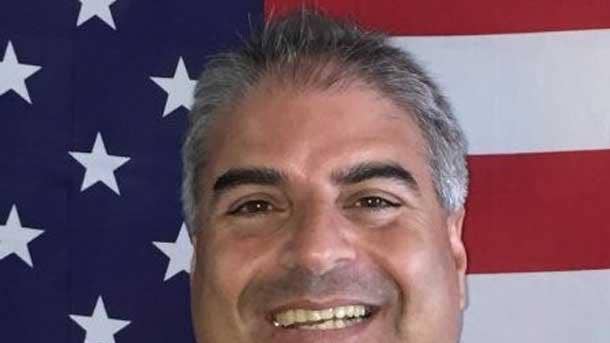
KME Systems Inc.
There’s “general frustration” with Microsoft at the complexity of NCE that didn’t need to be there, Mark Essayian (pictured), president of Lake Forest, California-based MSP KME Systems Inc., told CRN in an interview.
“It’s not that prices were going up, it’s did we have to make it this complex?” Essayian said. “It would have been nicer if this had been a little more cut-and-dry so we weren’t having these conversations and we weren’t worried as much. Some of this can be a ... risk to a company.”
Essayian said Microsoft putting partners “on the hook” is new.
“It’s a new bridge to cross,” he said. “We’ve never had to worry about this before, so nobody has any type of mechanism available to it.”
He said he and MSPs he has been speaking to have concerns about the financial impact of NCE.
“I know Microsoft says, ‘These are the rules.’ But I’m going to tell you, if there is an MSP that has this all figured out, I’d like to meet them,” he said. “I know vendors are doing a very good job on educating us but it’s shifted. Where are we going to end up?”
He is also concerned that the terms and conditions of NCE could continue to shift as Microsoft determines what works and what doesn’t once it’s widely in use.
“What is Microsoft going to do to help their partners?” he said. “I hang my hat on the fact that Microsoft, for the most part, has been partner friendly to us and that they’re going to understand what we’re facing and work with us.”
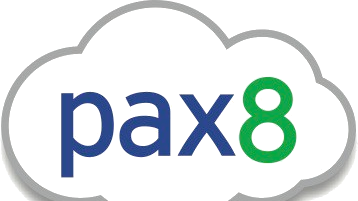
Pax8
Pax8
When it comes to the new partner capability scores, In a statement to CRN, Nikki Meyer, vice president of global vendor alliances for Greenwood Village, Colo.-based Pax8, promised to help partner customers “navigate the new path forward.”
“Pax8’s Microsoft partners can come at these changes from a position of confidence,” she said. “First, nothing will change for six months. Therefore, partners who are just catching their breath after NCE can breathe a little easier. Even then, the new designations for partners and the Microsoft Partner Capability Scores reflect their expertise inside this ecosystem.”
She continued: “As changes and programs with our vendor partners evolve, we will work through the specifics to discover where we can enable partners to thrive. Pax8 partners are the fastest-growing MSPs in the channel, so we expect to continue supporting their growth through our technology, education, and support. … We will continue that momentum for our channel partners and look forward to helping them navigate the new path forward.“
When Meyer and Pax8 Chief Operating Officer Ryan Walsh spoke at CRN parent The Channel Company’s XChange 2022 event, the two executives said that Pax8 is looking for ways to help partners manage credit risk as they grapple with new subscription terms offered through NCE.
“At Pax8, the role that we have to play in this space is really making sure that we’re partnering with you, guiding you through this process and coming up with the right resources and tools to be able to accommodate this,” Meyer said. “So while we don’t have a solution today on how we help support you on the credit risk, there are a number of scenarios and solutions that we are looking into. We are fairly early in the [process] and looking into this.”
Meyer previously spoke with CRN about the help for partners Pax8 has provided during the NCE rollout.
At Greenwood Village, Colo.-based Pax8, the company has held office hours and monthly NCE calls for partners. A recent session attracted 1,500 attendees with 1,800 questions submitted online within 30 minutes.
Meyer told CRN that Pax8 has also advised its partners on ways they can adopt NCE without breaking the bank.
“We worked closely with one of the partners who was on a [Microsoft 365] E3 subscription,” Meyer told CRN, “and when we took into account the incentives that were going to be in place after March, the way that incentives are paid up, we took into account the price increase and how that was going to land, also looking at how they actually used their license – we recommended that they actually went down to business premium and essentially we were able to save them $100,000. And that‘s between the savings on the price and also the additional incentives.”
Pax8 is working side by side with partners to not only migrate to NCE, but then to manage the platform going forward, said Meyer.
The seven-calendar-day window before distributor lock in for partners makes it imperative that managed service providers choose the right distributor from the outset of the licensing process, said Meyer, because they could “be locked into an annual agreement with very little flexibility to no flexibility to move.”
Partners must make sure they are teamed with a distributor that “can provide the services and offerings that they need to be able to accelerate their business,” said Meyer. “So not just around the cheapest partner to go through now, but really making sure that they‘re getting those value-added services.”
Meyer said that she appreciates the hardship NCE creates for smaller service providers that have to make heavy investments into changing their business.
“MSPs are constantly trying to transform their business and also add additional services,” she said. “This isn‘t just a distributor or indirect provider. If they’re working to deliver these extra services, it’s very difficult to actually get customers to come over to them based on service and that it doesn‘t just start becoming a price war.”
She continued: “It is such a significant change to so many people‘s business that those that are in the true SMB (small- to medium-sized business) space of smaller businesses, they’re feeling the pinch more because they feel that their entire business is at risk. The resources and investment they‘ve had to do is significant. One thing I think that we’ve learned over the time is not to not to diminish how big that change actually is.”
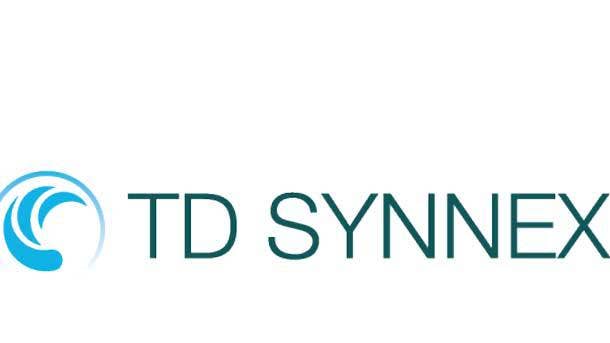
TD Synnex
To help partners struggling with NCE, TD Synnex created a competency to train its employees and partners on how to help partners use NCE.
“If you look at LinkedIn, you‘ll see hundreds of badges now appearing with TD Synnex-certified NCE because we actually built an entire course,” Reza Honarmand, senior vice president of global cloud hyperscale at TD Synnex, which is based in Clearwater, Fla., and Fremont, Calif, recently told CRN.
He continued: “We will put them through an examination. We certify our people, so they understand the tool, the process, the commercial aspects of NCE. So far, we have over 300 of our colleagues who have passed it. We’ll have 800 of them that will have it.”
TD Synnex is also training partners on how to manage subscriptions through NCE, said Honarmand. “Once you understand how to drive it, how to manage it, then actually it becomes a standard process,” he said.
Honarmand told CRN that while change is hard, he is confident that Microsoft service providers will see the long-term benefits of NCE after making the short-term changes.

Ingram Micro
When asked about the month-to-month premium, in an email statement to CRN, John Dusett, executive director for cloud services in the U.S. at Ingram Micro, acknowledged that the “Microsoft [new commerce experience] structure and pricing may create challenges for some MSPs and Indirect Providers.”
Distributors such as Ingram Micro are classified as indirect cloud solution providers by Microsoft.
“However, Ingram Micro has worked intently with Microsoft at engineering and sales levels to ensure clear paths to success for our partners,” Dusett said in the statement to CRN.
The “monthly, annual and multi-year terms allow partners to better forecast reoccurring revenue and gain term flexibility,” he said.
In an interview with CRN about how Ingram Micro is helping partners adapt NCE changes, Victor Baez (pictured), vice president of global cloud channel sales at the Irvine, Calif.-based distributor, said his company at the time had done more than 15 webinars with partners globally in six languages, reaching more than 13,500 attendees and more than 30,000 viewers on demand.
Ingram Micro has NCE-focused content available for co-branding and partner-branding to help partners when they talk to customers about NCE-prompted changes.
When Baez spoke to CRN, about 200 partners had signed up for one-on-one consultations with Ingram Micro employees in the past two weeks, according to Ingram Micro. The company offers office hours, monthly channel talks and has more than 100 Ingram Micro employees in weekly calls and training around NCE. The company even has a dedicated helpline for partners, the Ingram Micro Cloud NCE Advisory.
“We enhanced our platform – we went live in October across 26 marketplaces around the world with some functionality of NCE,” Baez said. “And then we‘ve been doing a ton of migrations. We have our own migration tool for Azure NCE that we’ve had live for quite a while, and we‘ve been helping partners migrate their subscriptions from CSP (the Cloud Solution Provider program) to NCE. So we’ve been busy.”
All Azure NCE transitions for Ingram Micro were done as of Feb. 1, according to the company.
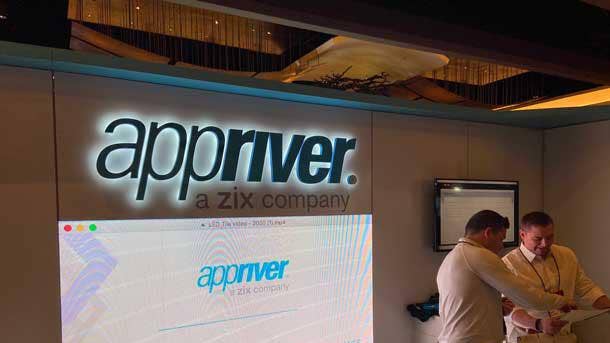
AppRiver And OpenText
Geoff Bibby, senior vice president of small- to medium-sized business and consumer (SMB/C) at OpenText, the parent company of Dallas, Texas-based distributor AppRiver, told CRN in a statement that “this new rollout is the latest in a series of strategic changes Microsoft has made to ensure it is delivering the most value to its partners.”
“It signifies a major shift in the Microsoft Partner Program … while this is a major change for partners, it is manageable providing you have an indirect partner that can guide you,” Bibby said. “Although partners can only enroll in one benefits program, it’s important to note that those enrolled in the old benefits program as of Sep 30, 2022, can continue to pay for legacy Microsoft Partner Network benefits at their next renewal whether or not they qualify for a Solutions Partner designation. An experienced and dedicated Microsoft Indirect CSP should be able to bring you through a consultation showing you the best path forward for your business.”
During CRN parent The Channel Company’s XChange 2022 event, Justin Gilbert, senior director of MSP channel development at OpenText, said, “We want to see if we can help you guys claw back rebates and help you plan out your transition into New Commerce. It is the biggest, most fundamental change to hit the Microsoft ecosystem since they launched in 2011.”
“With [NCE] we’ve been helping our partners not just navigate some of the murky waters of that but actually come out better than they were before,” Gilbert said. “Microsoft is just our entry. It’s what we start talking to partners about. We’re here to help you grow your business.”
What OpenText is doing is helping those partners not only navigate through NCE but increase their margins.
“While it can seem scary, part of that is from rebates,” Gilbert said. “The rebate program that we have helps our partners. If we can help you guys navigate the changes with NCE, then we want to talk about being a partner. But we want to let you guys grow your business with us first.”